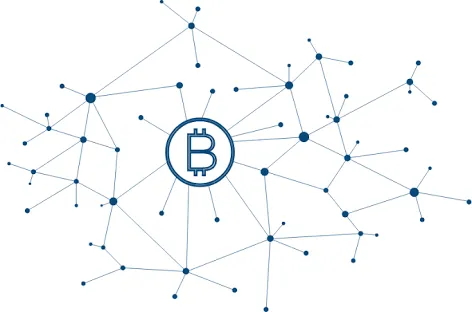
So now we come to the 7th disruption, the one that may have the most profound impact yet on society
as a whole. Banking and finance—the economic engine of nations—is what countries are built on. In
turn, the mechanics of banking and finance exist in order to process currency. Every nation needs
financial institutions to function.
Banks are the intermediaries for all financial transactions, even those conducted using cash. While you
may not see the third-party-involvement in a cash transaction, it exists because a) banks determine the
value of the cash you spend and b) without a financial institution, there would be no cash minted and
you would be forced to barter beads or some other token of indeterminate value.
For non-cash transactions (and cash transactions where money is sent across national boundaries), the
influence of financial institutions is much more obvious. You need a third-party institution to pay for,
or accept payment for goods and services using checks and credit cards. You need a bank or a money-
transfer service to send money internationally. You need a regulated exchange to trade currencies and
so on.
Trust in a Change
However, all this is set to change, digital currencies, growing rapidly in adoption, will for the first time
in hundreds of years enable two people to exchange valued goods and services for currency without any
intermediary. Is this a good thing? Yes, unless you are in the banking business. Why is it good? Because
cutting out the multiple middle-men in financial transactions will leave money in your pocket. No
intermediary equals fee-free transactions. No wonder digital currency has the banking fraternity
worried.
Banks originally came about to solve the problem of distrust among parties involved in financial
transactions. However since that time (the 15th century), banks have grown in power to such a great
extent that the fortunes of national economies rest upon them and those who manage them. The
financial crisis of 2008 showed us just how vulnerable a situation this places our financial system.
Digital currency solves the problem of distrust between transacting parties and the vulnerabilities of
centralized finance. The blockchains (public ledgers) upon which digital currencies are based have no
insider control, which means they cannot be manipulated. The ledgers are fragmented across
thousands of computers, all of which verify every transaction, so hacking is all but impossible. All
transactional data is at the same time public, while ensuring privacy since no personal information is
required to complete transactions, unlike those made with credit cards or other centralized processes.
In fact, the term “digital currency” is something of a misnomer. These software-driven “proofs of
worth” (for want of a better expression) have the potential to represent so much more than money
alone. The Wall Street Journal published an essay in January of 2015, detailing the work going into
using the digital currency principle to create electronic voting systems impervious to rigging, binding
transfers of property, and smart contracts, among other financially focused innovations.